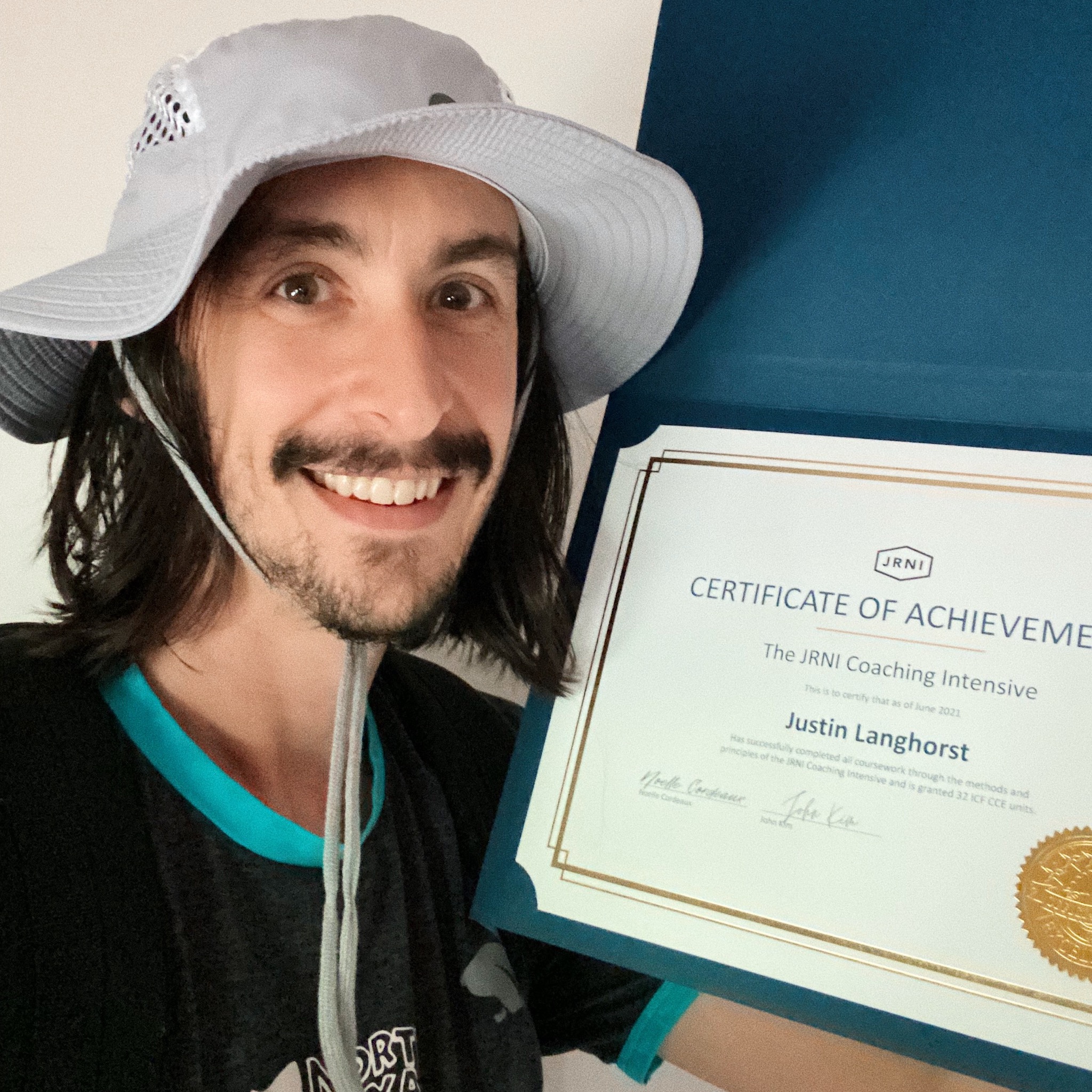It was summer 2020 and I was alone on my way back home from a short stay at the coast with family and friends. I often listen to podcasts while driving so what a perfect opportunity to listen to a new one by the author of a book I had been reading at the time: John Kim’s The Angry Therapist, a no BS guide to self-improvement.
I’ve been reading self-help / personal-growth books casually since I was in my teens for reasons I am unable to express eloquently. The podcast though … the podcast was intriguing because it offered a glimpse into a place I had been seeking for a long time. At the end they advertised their coaching training program and there was something about the idea of becoming a life coach that was incredibly appealing. Within 15 minutes of getting home after a 4-5 hour drive, I was signed-up to the program and ready to go. I felt completely in alignment for the first time in forever (there’ll be magic, there’ll be fun).
I’ve always wanted to directly help people in some capacity, I was just never quite sure how. Or if I was even ready to do so. There was part of me that wanted to impart wisdom but I didn’t really have any and what I did know I never really felt qualified to teach. Curious.
I used to think the idea of life coaching was pure BS. Though, I was coming from an ignorant perspective of what a life coach actually did. I thought it was about offering advice in whatever areas of life to … live better? To be happier? To gain more fulfillment in life? I don’t know, honestly it wasn’t clear and like a lot of things in life, I dismissed the concept for whatever reason before I knew much of what it was about.
The main thing I got wrong in my assumption was related to advice. Life coaching isn’t about advice giving AT ALL. So what IS coaching, then?
Life coaching is a partnership between a coach and a client that moves the client forward to become the best version of themself through the application of motivation, accountability, planning, troubleshooting and support. — Lumia Coaching
The primary role of a coach is to be a mirror for their clients and to shine light into the dark areas clients lack awareness or are unwilling to explore by themselves in order to aid their forward progress.
I believe people ultimately know what’s best for themselves. We all have to do our own thing and make our own mistakes to learn and grow. And we all have to learn when to ask for help and how to actually receive it.
I loved every part of the program — the content, the members of my cohorts, the instructors and my mentor coach in the signature program designed specifically for ICF accreditation. And I’m so proud to be an alumni of JRNI, now known as Lumia.
